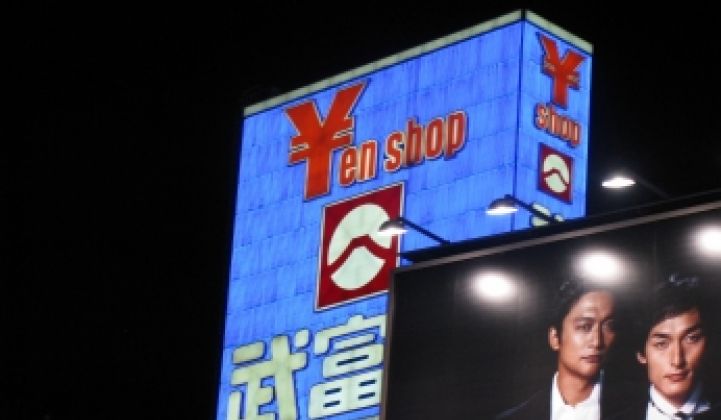CEMS, meet HEMS.
Hitachi and Panasonic unfurled an alliance today in which the companies will link their strengths in smart grid technologies. Hitachi has carved out expertise in community energy management systems (CEMS), technology for connecting power plants and alternative energy sources with communities. Panasonic, meanwhile, has been honing its products for home energy management systems (HEMS).
By working together, the companies -- ideally -- can eliminate any hiccups between the world outside the meter and the appliances that reside inside the meter. The alliance also opens the door for both companies to participate in planned community projects. The world population is increasingly gravitating toward urban centers, particularly in developing countries. The migration has in turn created an opportunity to think about urban planning -- transportation, live/work corridors, etc. -- with respect to how energy will be consumed. Cisco and IBM have positioned their products and know-how to help tackle the challenges that will be faced by the city of the future.
With Hitachi and Panasonic joining the fray, they now have more company. Samsung, which makes everything from appliances to homes, seems poised to make a similar move. Urban planning appears to be more suited to corporate bigwigs than startups.
Hitachi in fact is already participating in the Singapore-Tianjin Eco City Project, a planned community outside of Tianjin in China. The company has some other interesting sociological applications, too. Geomation crunches satellite data to determine the best time to harvest wheat or rice. Life Microscope probes your vital signs to help you lose weight (back in 2008, Hitachi employees lost a collective 5.1 kilograms with the program).
Japan remains mired in the same economic doldrums it has been stuck in for years, but many conglomerates believe that energy will help revive the country's flagging exports. Japan imposed aggressive energy efficiency standards and alternative energy policies in the early '70s in the wake of the first Arab oil crisis and, unlike what happened in many countries, it kept going. Thus, many of the conglomerates have products they now realize have export value. Panasonic puts many on display in its Eco house in Tokyo. Several conglomerates are also working with Los Alamos National Labs in New Mexico on smart grid projects. (I will be in Tokyo at Ceatec the first week of October judging smart grid/green IT projects, so expect more stories on this subject.)



